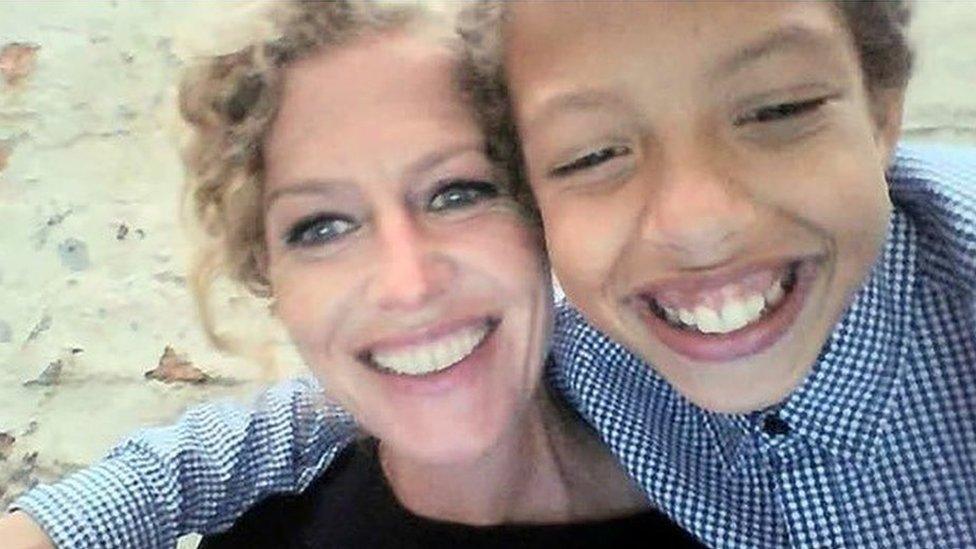NI in 2020: What shared the headlines with Covid-19?
- Published

John Hume's death in August captured headlines
Looking back it will be impossible to think of 2020 without thinking of Covid-19.
But while lots of things ground to a halt because of the virus, there were still plenty of other big news stories.
BBC News NI reviews some of the other stories to make the headlines during a dramatic and tumultuous year.
Stormont returns
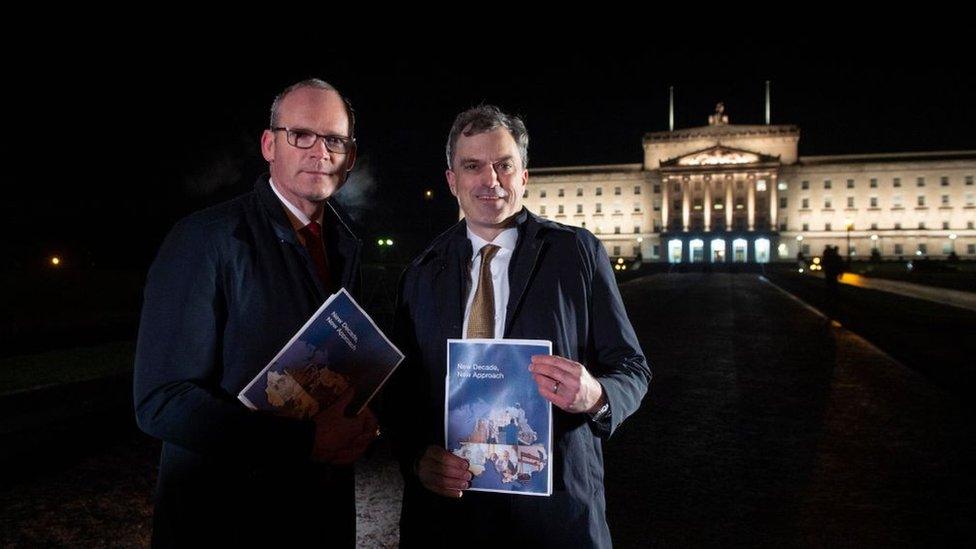
Simon Coveney and Julian Smith pushed the deal over the line
At the start of January, Northern Ireland's devolved government remained suspended, almost three years after it collapsed due to the Renewable Heating Incentive (RHI) scandal.
But intensive negotiations began in the new year to resolve some of the biggest sticking points, including an Irish language act, reform of the petition of concern and the nurses' pay dispute which had caused a strike at the end of 2019.
Late on 9 January, NI Secretary Julian Smith and Tánaiste (Irish Deputy PM) Simon Coveney emerged from the darkness at Stormont to announce a deal - New Decade, New Approach.
The following day the DUP and Sinn Féin announced they would go back into government and on 11 January the assembly met and a five-party power-sharing executive was re-established.
Little did they know the challenges that lay ahead.
Stephen Clements dies age 47
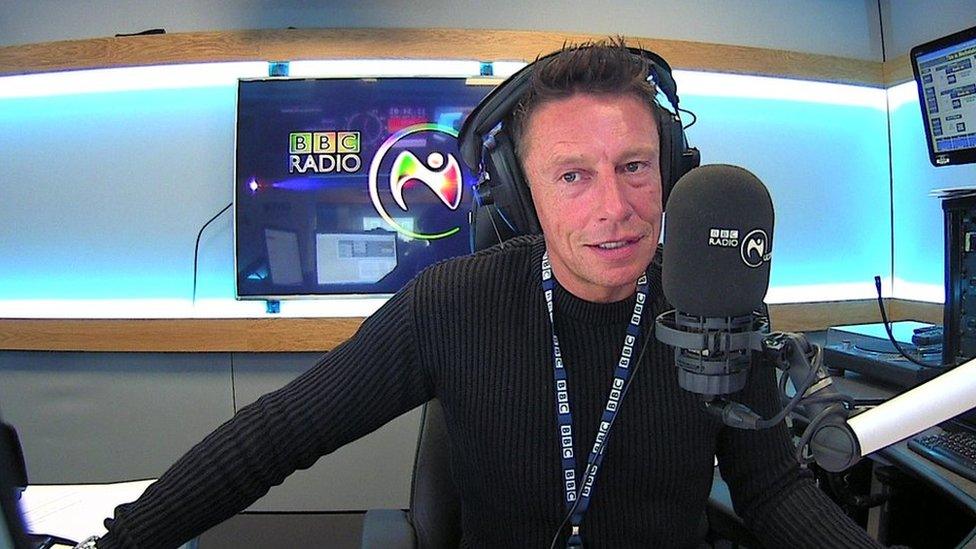
One of the most popular presenters on Northern Ireland radio, Stephen Clements, died suddenly at the beginning of January.
Since September, he had presented the mid-morning show on BBC Radio Ulster after moving from Q Radio's Breakfast Show.
He began his career at Citybeat and also lived in South Korea for a period teaching English.
In a statement, Stephen's brother Gavin Clements said: "We are devastated to lose Stephen, who was deeply loved by his family and friends."
The UK leaves the EU
Otherwise known as Brexit - after years of debate, negotiation and parliamentary shenanigans it finally happened at 23:00 GMT on Friday, 31 January.
About 100 people gathered at Stormont to mark the occasion.
First Minister Arlene Foster appeared on RTÉ to say that Northern Ireland and the Republic of Ireland would remain "neighbours" after Brexit, while Deputy First Minister Michelle O'Neill said there was a "momentum of change" towards a united Ireland.
And so began another year of debate and negotiations over the post-Brexit trade deal and the Irish Sea border.
Disaster averted
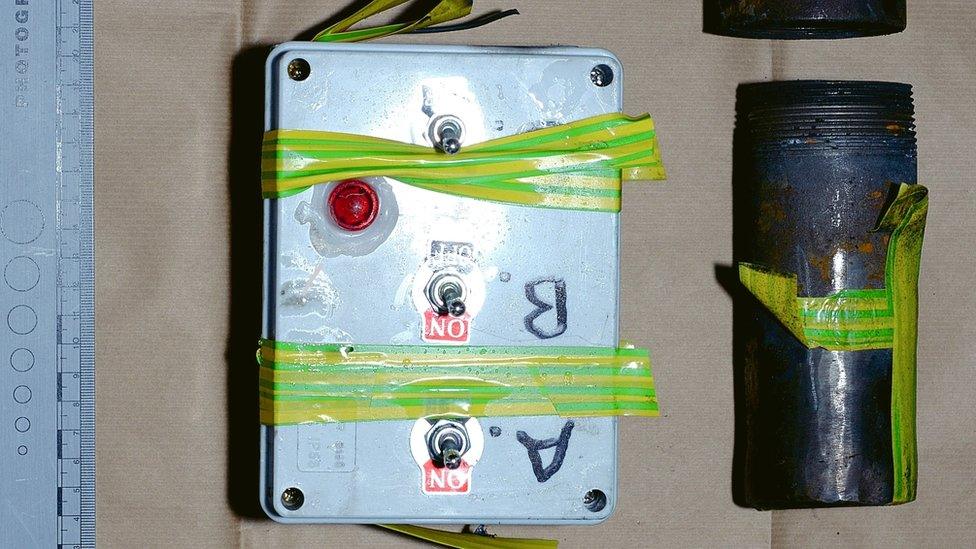
Police released photos of the device
Less than a week after Brexit day, police revealed they believed dissident republican group the Continuity IRA (CIRA) had intended to detonate a bomb on board a ferry to coincide with the occasion.
Following a call to a media outlet, the Police Service of Northern Ireland (PSNI) located the device inside a lorry in an industrial estate in Lurgan, County Armagh.
Det Supt Sean Wright said the "only conclusion that we can draw is that once again dissident republicans have shown a total disregard for the community, for businesses and for wider society".
Sinn Féin tops the poll
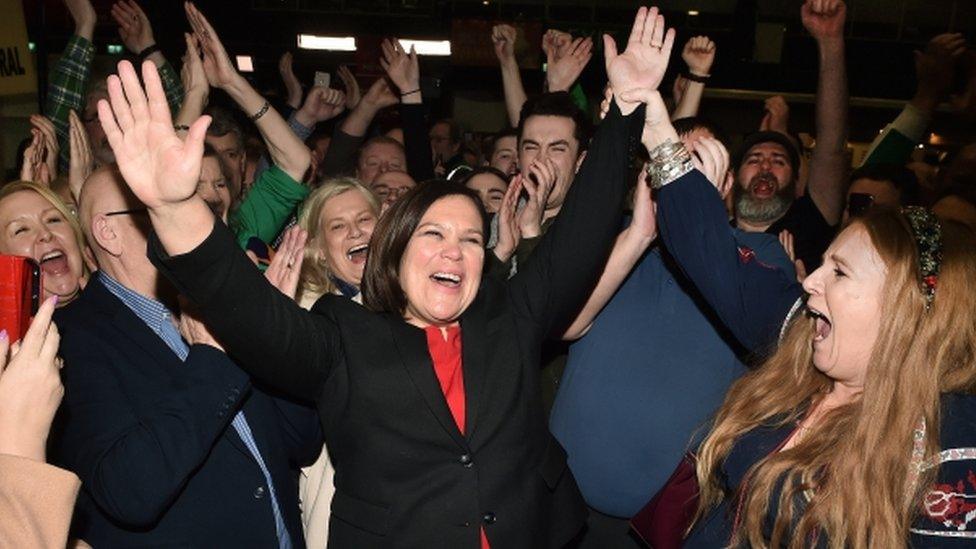
The election was a good result for Sinn Féin and Mary Lou McDonald
In February, the eyes of politicos were turned south of the border as the Republic of Ireland's voters went to the polls for the country's first general election in four years.
Incumbent Taoiseach (Irish PM) Leo Varadkar hoped his Fine Gael party would be rewarded for his work on Brexit, while second-biggest party Fianna Fáil, led by Micheál Martin, were hopeful of taking the top job for the first time in almost a decade.
But it was Sinn Féin who surged at the polls, going from being the third-largest party to winning the most first preference votes and being just one seat behind Fianna Fáil.
After disappointing showings in the presidential, local and European elections, it was a big win for party leader Mary Lou McDonald.
Claiming the electorate had voted for change, she said she should be the next taoiseach, but after months of negotiations Sinn Féin could not form a majority coalition.
Instead Fine Gael and Fianna Fáil went into government along with the Greens and Mr Martin became the country's leader.
RHI Inquiry is published
The RHI scheme caused the collapse of Stormont in 2017 and three years on, the long-awaited findings of an inquiry into how it operated were finally published.
The inquiry, led by Sir Patrick Coghlin, found corrupt or malicious activity was not the cause of what went wrong with the scheme.
It found the scheme was a "project too far" for the NI Executive and "should never have been adopted".
The 656-page report said that while there was "unacceptable" behaviour by some officials, ministers and special advisers, what went wrong was a "compounding of errors and omissions over time and a failure of attention".
Set up to encourage the use of renewable energy sources, the RHI closed to new entrants in 2016 amid concerns about the potential cost.
Those boilers used wood pellets, but the subsidy payment was higher than the cost of the fuel, creating an incentive to use the boilers to generate income.
The search for Noah Donohoe
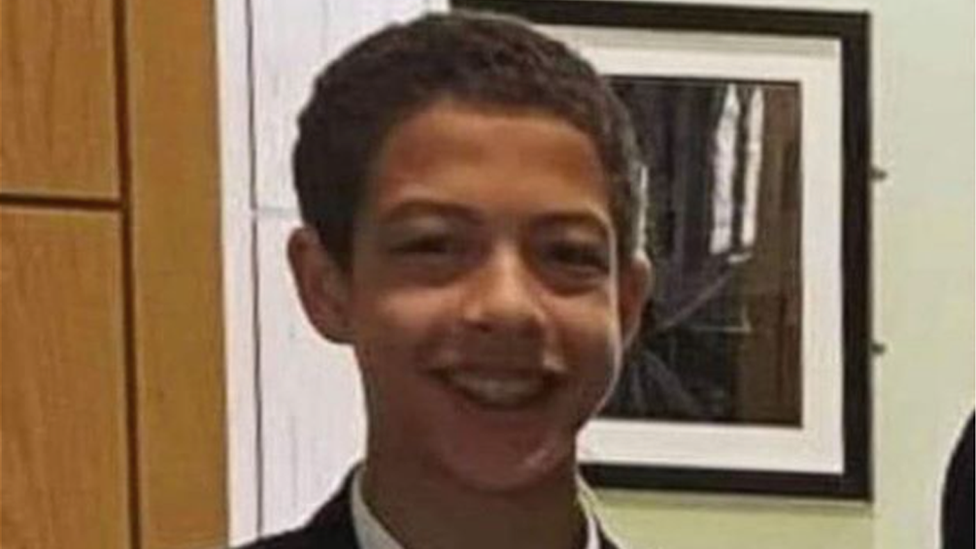
On 21 June, 14-year-old Noah Donohoe was seen close to the Shore Road, in north Belfast, and then vanished.
His disappearance sparked a huge search effort involving members of the community, police and search and rescue volunteers.
Six days later his body was found in a 1km-long storm drain in the north of the city.
He was later laid to rest following a small, private funeral in St Patrick's Church, in Donegall Street, where Fr Michael McGinnity said many people had been "consumed by a sadness that cannot be put into words".
In a statement, his family said: "He was very special. It is very hard to do justice or honour the extraordinary relationship Noah and his mummy shared."
It added: "In his 14 years his mummy got so much from their special bond, he taught his mummy so much. They were each other's world."
In July, a post-mortem examination found Noah died from drowning.
A number of pre-inquest hearings have been held and the next is scheduled for 18 January.
John Hume dies aged 83

John Hume with his wife Pat after his election to the European Parliament in 1979
Tributes poured in after the former SDLP leader and Nobel Peace Prize winner John Hume died on 3 August.
Mr Hume passed away in a Londonderry nursing home after a long illness.
A founder member of the SDLP, he served as MP for Foyle, an MEP, a councillor and a member of various devolved legislatures in Northern Ireland through the decades.
He played a major role in the peace talks which led to the Good Friday Agreement in 1998.
Former Prime Minister Tony Blair said he was "a visionary who refused to believe the future had to be the same as the past".
"His contribution to peace in Northern Ireland was epic and he will rightly be remembered for it."
Lord Trimble, who shared the Nobel Peace Prize with Mr Hume, said: "He was a major contributor to politics in Northern Ireland, particularly to the process that gave us an agreement that we are still working our way through.
"He will be remembered for that contribution for years to come."
His death came months after his long-time deputy Seamus Mallon, former deputy first minister of Northern Ireland, passed away.
Mr Mallon was heavily involved in the civil rights movement in Northern Ireland.
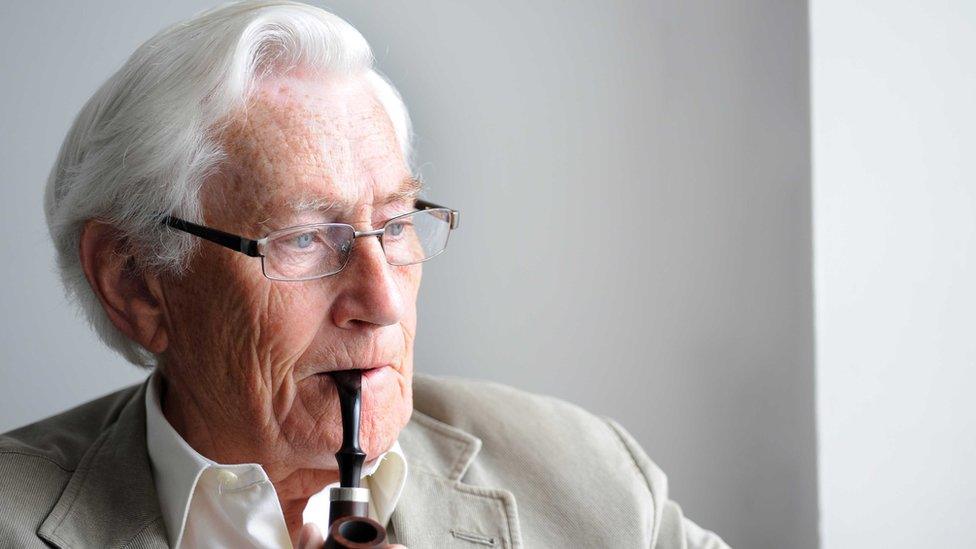
Seamus Mallon died in January
Former US president Bill Clinton described Mr Mallon as "a hero of the peace process and a profoundly good man".
"A teacher in practice and in heart, the lessons of his life and power of his example are as important today as ever.
"I will always be grateful for the opportunity to have known and worked closely with him."
A huge operation against the New IRA
A joint operation by MI5 and the PSNI against dissident republican group the New IRA led to a series of arrests.
The New IRA was formed in 2012 and is said to have about 500 supporters and fewer than 100 prepared to plan and carry out attacks, principally against the police.
In 2019, it murdered journalist Lyra McKee during disorder in Derry.
MI5 bugged two alleged meetings of the New IRA executive in February and July and 10 people remain in custody.
Police said despite the apparent success of the operation it was "pre-emptive" to say the group was no longer a threat.
No public inquiry into Finucane murder
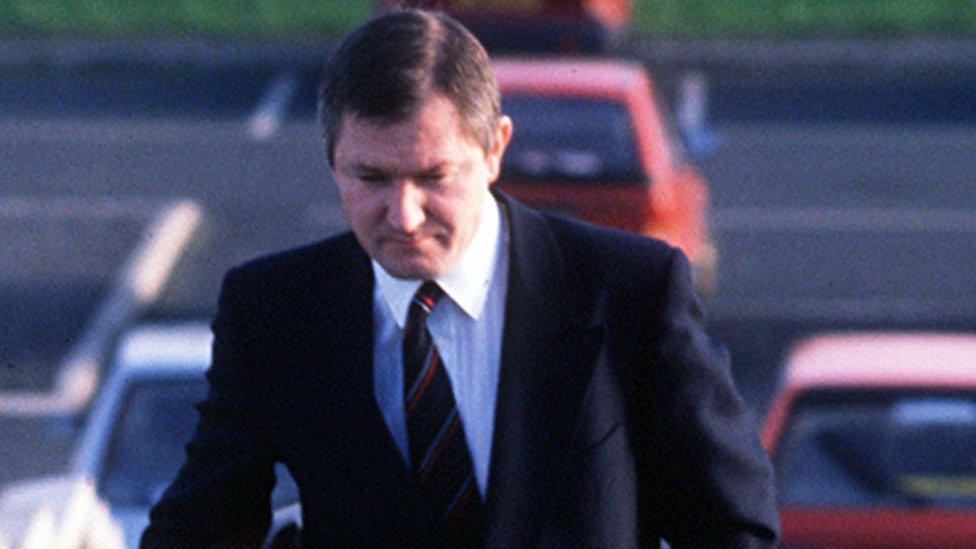
Pat Finucane was murdered in 1989
For years the family of murdered Belfast solicitor Pat Finucane have campaigned for a public inquiry into his death.
He was was shot dead by loyalist paramilitaries from the Ulster Defence Association (UDA) in February 1989.
At the end of November, Northern Ireland Secretary Brandon Lewis said a public inquiry would not take place at this time.
Several examinations of the case found state forces colluded in his murder.
Mr Finucane's widow Geraldine said the government's decision "makes a mockery" of previous rulings.
Representatives from Sinn Féin, the SDLP, Alliance Party and Greens all wrote to the government urging it to reconsider the decision.
Essex lorry death convictions
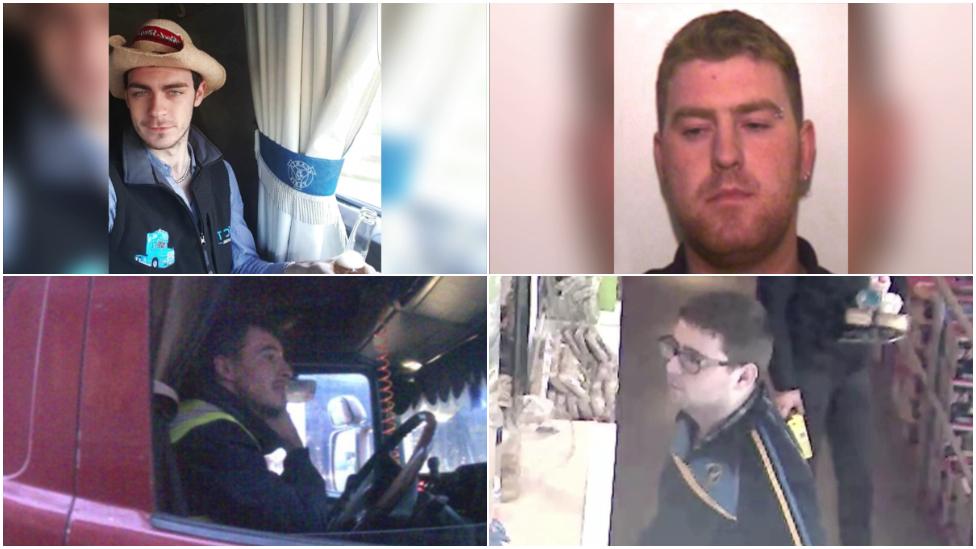
Maurice Robinson (top left) and Ronan Hughes (top right) admitted manslaughter earlier in 2020 while Eamonn Harrison (bottom right) was found guilty of manslaughter and Christopher Kennedy of conspiracy
In October 2019, 39 Vietnamese migrants were found dead in a lorry trailer in Essex.
The investigation stretched across Europe and included several links to Northern Ireland and the Republic of Ireland.
Eamon Harrison, from Newry in County Down, was the driver who dropped off the trailer at the Belgian port of Zeebrugge, while Christopher Kennedy, from Darkley in County Armagh, collected trailers from Purfleet in Essex on two earlier successful runs.
In December, Harrison, 24, was found guilty of manslaughter along with people-smuggler Gheorghe Nica, 43.
Kennedy, 24, was found guilty of conspiring to assist illegal immigration, along with Valentin Calota, 38, from Birmingham.
Earlier in the year lorry driver Maurice Robinson, 26, from Craigavon in County Armagh, pleaded guilty to manslaughter. He picked up the trailer from Purfleet and later found the bodies, but did not phone the emergency services immediately.
Ringleader Ronan Hughes also admitted manslaughter. The 40-year-old of Tyholland, County Monaghan, made a career in Europe out of cross-border crime.
- Published10 January 2020
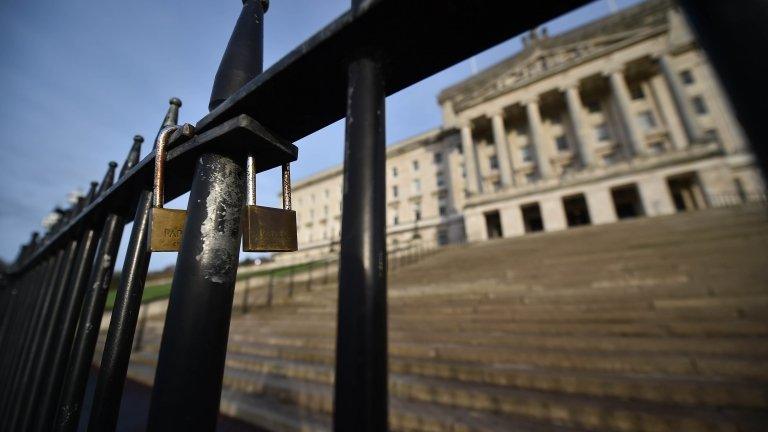
- Published3 August 2020
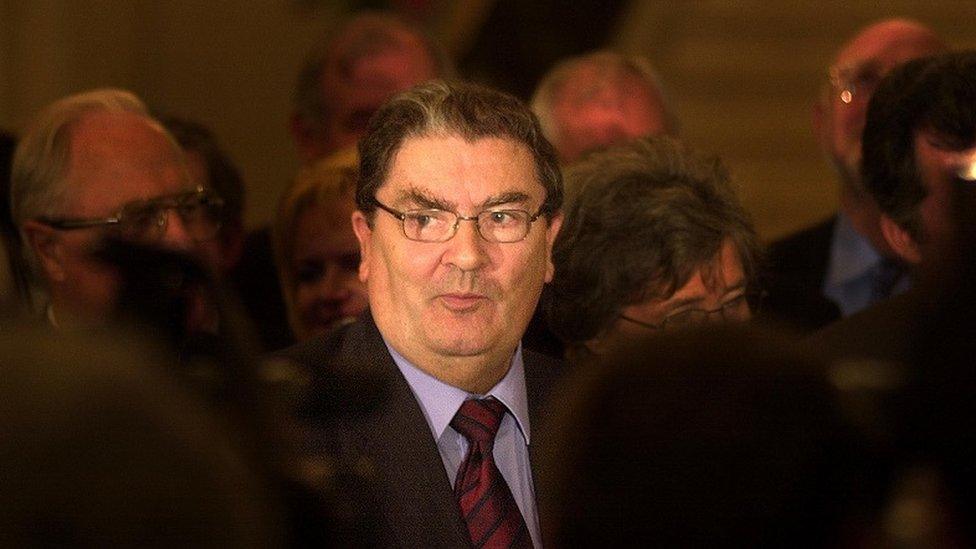
- Published1 July 2020
